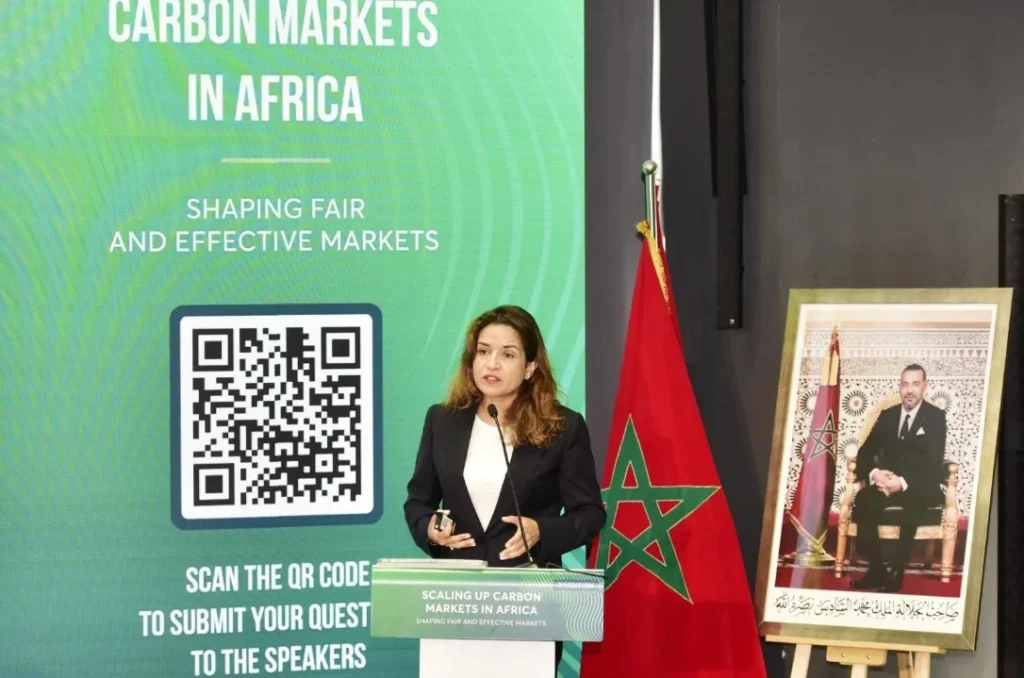Morocco has an “unmissable” opportunity to position itself as a regional hub for the creation of high-quality carbon credits, affirmed the Minister of Energy Transition and Sustainable Development, Leila Benali, on Tuesday in Casablanca.
“We have today an unmissable opportunity to become this hub for the creation of high-quality carbon credits, generating environmental and social co-benefits,” Ms. Benali stated on the occasion of the 2nd edition of the conference “Scaling up carbon market in Africa: Shaping fair and effective markets,” held at the initiative of Casablanca Finance City Authority (CFCA) and the CDG group, in collaboration with the German international development cooperation agency (GIZ).
In this regard, the minister emphasized the need to harmonize the regulatory framework, strengthen transparency and governance, ensure environmental integrity, and equity in the distribution of benefits, in addition to mobilizing massive funding.
She noted that the carbon market remains a first-rate economic instrument that constitutes, in Morocco, an essential political and social tool for establishing energy, economic, and social transition.
Furthermore, Ms. Benali pointed out that Morocco’s commitment does not respond to a logic of compliance or mere international alignment, but stems from a deeply ethical, strategic, and economic choice, driven by the conviction that climate action should no longer be the exclusive domain of major emitters, but should instead rely on the competitive advantages of countries like ours.
In this regard, the minister highlighted the Kingdom’s potential in renewable energies and the significant investments made in recent decades in both physical and intangible infrastructures, which enable the development of a carbon market.
At the same time, Ms. Benali estimated that the Carbon Border Adjustment Mechanism (CBAM) has proven to be more of an opportunity than a constraint for Morocco, as it has allowed for the promotion of this energy industrial policy and competitiveness to accelerate the energy transition, particularly for exporting industries and services.
For her, carbon certification thus becomes a true instrument of competitiveness, market share preservation, and support for the decarbonization of international value chains.
This conference featured panels addressing, among other topics, the development of projects on carbon markets in Africa, the perspectives of buyers and investors in these markets, as well as the emergence of Casablanca as a regional carbon market hub.


